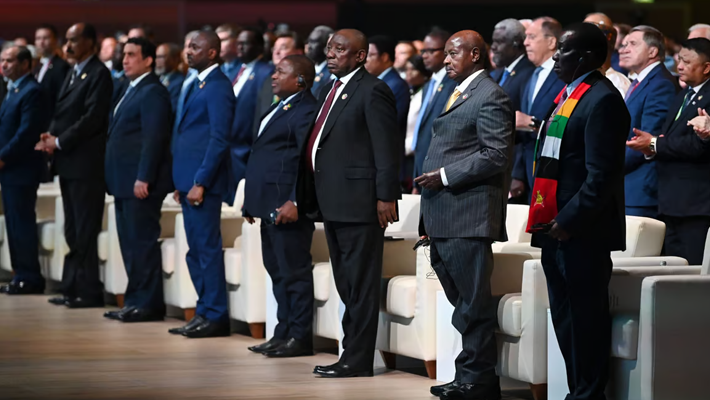The Dangers of Populism and Dictatorship in Africa: A Cycle of Empty Promises and Repression
Populist leaders in Africa often rise to power by promising change, only to undermine democracy and entrench authoritarian rule. This opinion piece explores how populism fuels dictatorship, weakens economies, and threatens Africa’s future while highlighting the need for strong institutions and democratic resilience.
OPINIONPOLITICS
Emmanuel Makome, Markloyd Mugambi
3/6/20252 min read


The Rise of Populism and Authoritarianism in Africa
In recent years, Africa has seen a surge in populist leaders and entrenched dictatorships. While populism often emerges as a response to the failures of traditional governance, it has frequently been used as a tool for manipulation rather than meaningful change. Many African leaders have exploited populist rhetoric to consolidate power, silence opposition, and weaken democratic institutions, leading to long-term instability and economic decline.
The Populist Playbook: Promises Without Substance
Populist leaders in Africa often rise to power by presenting themselves as champions of the people, railing against corrupt elites and foreign interference. They promise economic prosperity, justice, and sovereignty, appealing to the frustrations of ordinary citizens. However, once in office, these leaders frequently abandon their pledges in favor of consolidating control. Institutions meant to check executive power, such as independent judiciaries and free media, become targets of repression.
Examples abound: leaders who promise to end corruption but instead use state resources to enrich themselves and their allies; politicians who vow to create jobs but implement disastrous economic policies that drive away investors. The cycle repeats itself, leaving citizens disillusioned and disempowered.
The Dictator’s Grip: How Populism Enables Authoritarianism
Populism, when unchecked, often paves the way for authoritarian rule. Leaders who claim to represent “the people” gradually dismantle democratic safeguards, arguing that opposition parties, civil society groups, and the media are enemies of progress. They extend term limits, alter constitutions, and deploy security forces to crush dissent.
Countries like Zimbabwe under Robert Mugabe and Uganda under Yoweri Museveni illustrate how populist leaders transition into full-blown dictators. What begins as a movement for the people turns into a regime that prioritizes power over governance. The result? Widespread poverty, political repression, and a lack of meaningful development.
The Economic Cost of Populist and Authoritarian Rule
Beyond the erosion of democracy, populist and dictatorial governments often mismanage economies. Instead of creating sustainable policies that encourage investment and growth, they prioritize short-term handouts to maintain popularity. Investor confidence dwindles, inflation skyrockets, and international partnerships weaken.
For instance, in countries where leaders prioritize populist nationalism over sound economic strategy, foreign businesses pull out, leading to job losses and economic stagnation. The suppression of free markets in favor of state-controlled economies often results in inefficiency, corruption, and economic downturns.
The Way Forward: Strengthening Institutions and Democratic Culture
Africa’s path to stability and prosperity lies in rejecting the pitfalls of populism and dictatorship. Strong institutions—independent courts, free media, and robust electoral systems—must be protected from political interference. Civil society and youth movements have a crucial role to play in holding leaders accountable and demanding transparency.
Moreover, international partners should condition aid and trade agreements on democratic governance and respect for human rights. Without external and internal pressure, authoritarian tendencies will continue to thrive.
Conclusion
Populism in Africa, when not paired with real democratic commitment, often leads to authoritarian rule and economic failure. While the promise of “people-first” leadership sounds appealing, history has shown that many populist leaders merely use such rhetoric to entrench their power. If Africa is to break the cycle of dictatorship and underdevelopment, it must embrace democratic resilience, institutional strength, and informed political engagement.
© 2026. Ke Press Global. A Ke Harbor Company. All rights reserved.
FOLLOW KE PRESS GLOBAL ON :
Contact us


